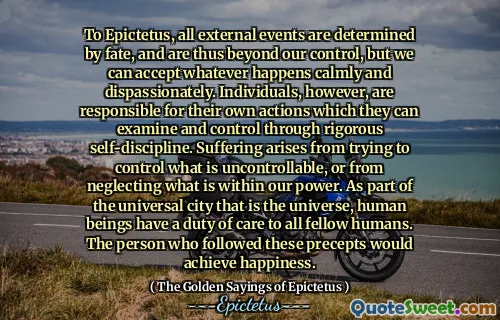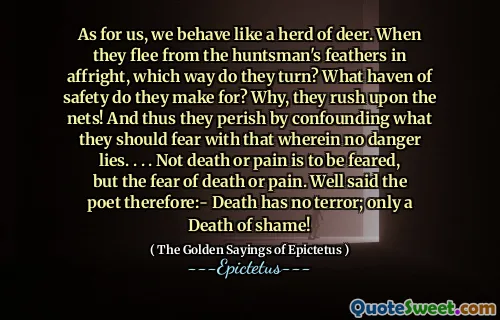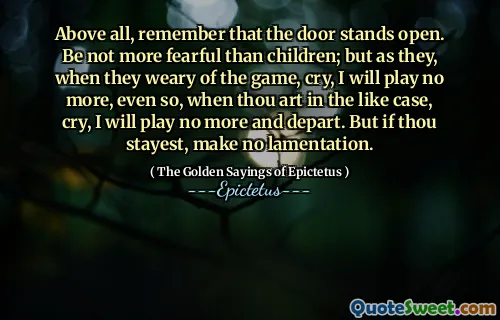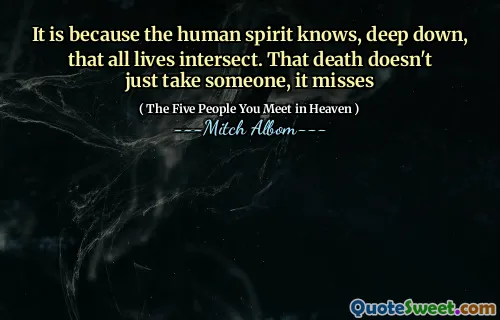
至于我们,我们的行为就像一群鹿。当他们从艾夫赖特(Affright)逃离猎人的羽毛时,他们会转向哪种方式?他们做什么安全的天堂?为什么,他们冲向网!因此,他们通过将不存在的危险所害怕的东西混淆而灭亡。 。 。 。不是死亡或痛苦,而是对死亡或痛苦的恐惧。因此,诗人说: - 死亡没有恐怖;只有羞耻的死亡!
(As for us, we behave like a herd of deer. When they flee from the huntsman's feathers in affright, which way do they turn? What haven of safety do they make for? Why, they rush upon the nets! And thus they perish by confounding what they should fear with that wherein no danger lies. . . . Not death or pain is to be feared, but the fear of death or pain. Well said the poet therefore:- Death has no terror; only a Death of shame!)
在这段经文中,Epictetus使用了一群鹿的隐喻来说明人们经常对恐惧的反应。就像鹿盲目逃离,错误地陷入危险中,而不是寻求安全一样,个人可能会惊慌失措,并在恐惧的影响下做出不良选择。他们可能会混淆真正威胁他们的东西,从而导致他们的倒台。 Epictetus建议,人们对这些事件的非理性恐惧并不是担心死亡或痛苦的实际事件,而是真正阻碍了它们的原因。
Epictetus强调了观点对恐惧的重要性,认为不应恐惧死亡,而是与面对不佳有关的耻辱。这种观点鼓励个人面对自己的恐惧,而不是让对痛苦或失败的预期决定他们的行为。通过承认对这些经历的恐惧通常比经历本身更大,更具破坏性,人们可以找到一种自由和赋权的感觉,可以在没有恐惧的恐惧障碍的情况下生活。











